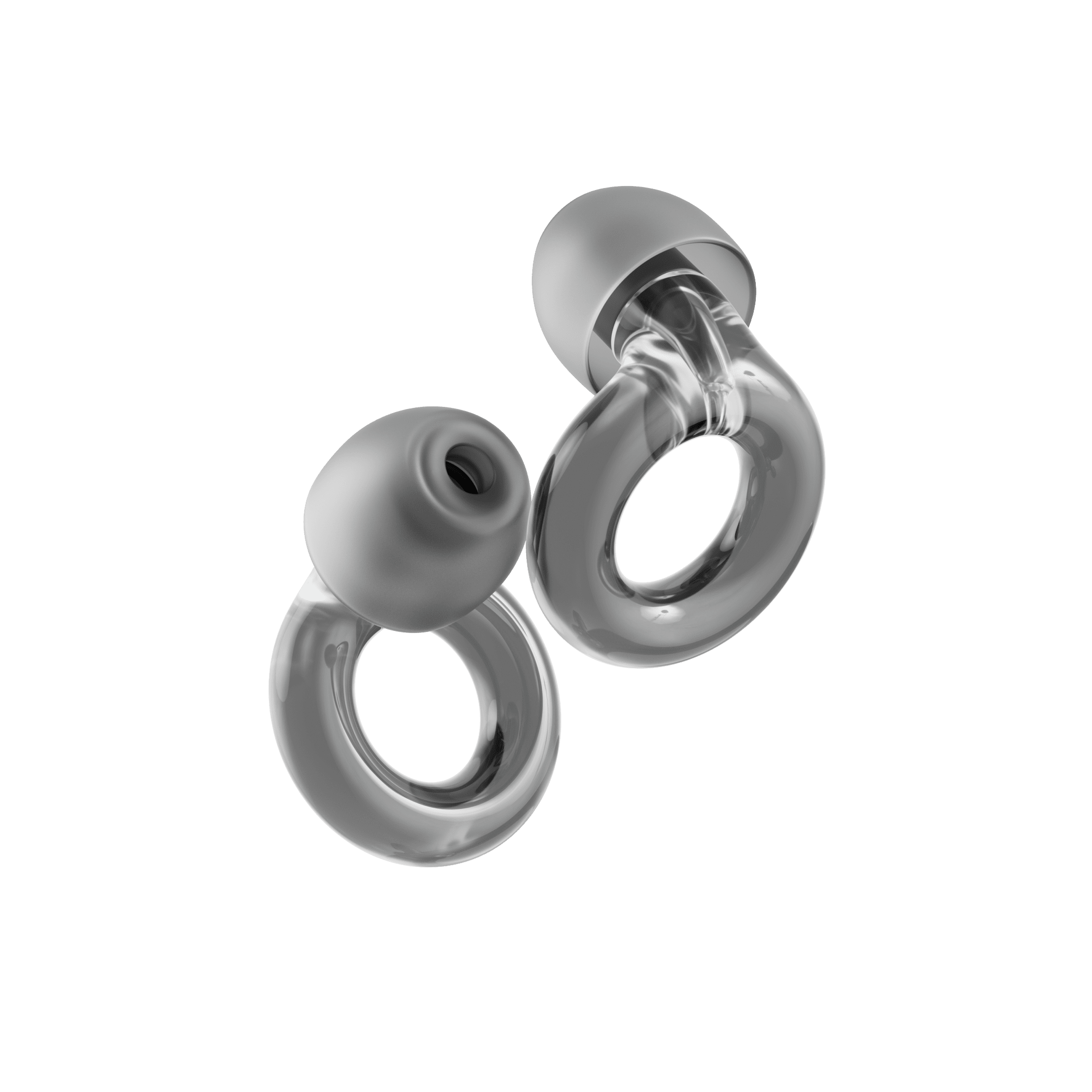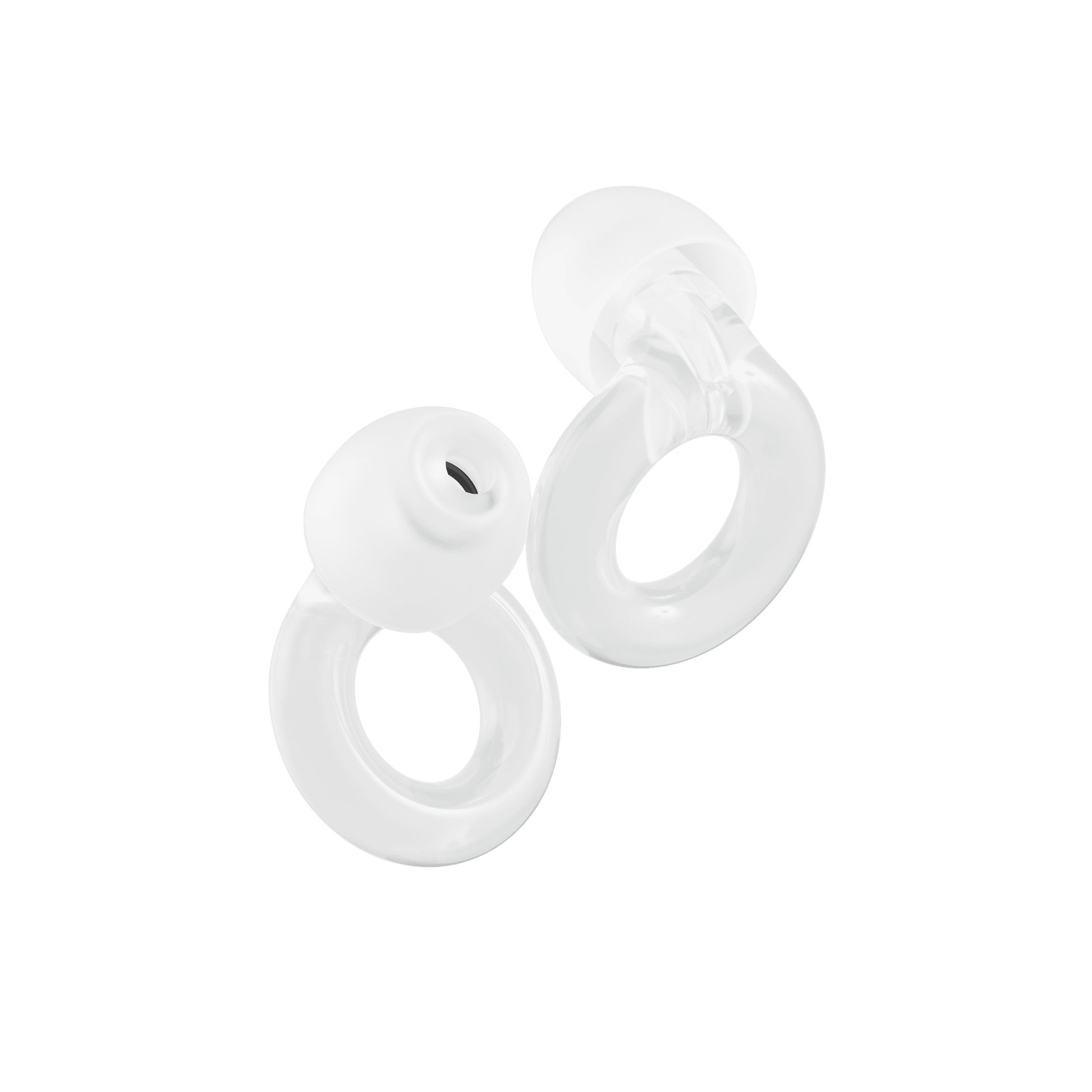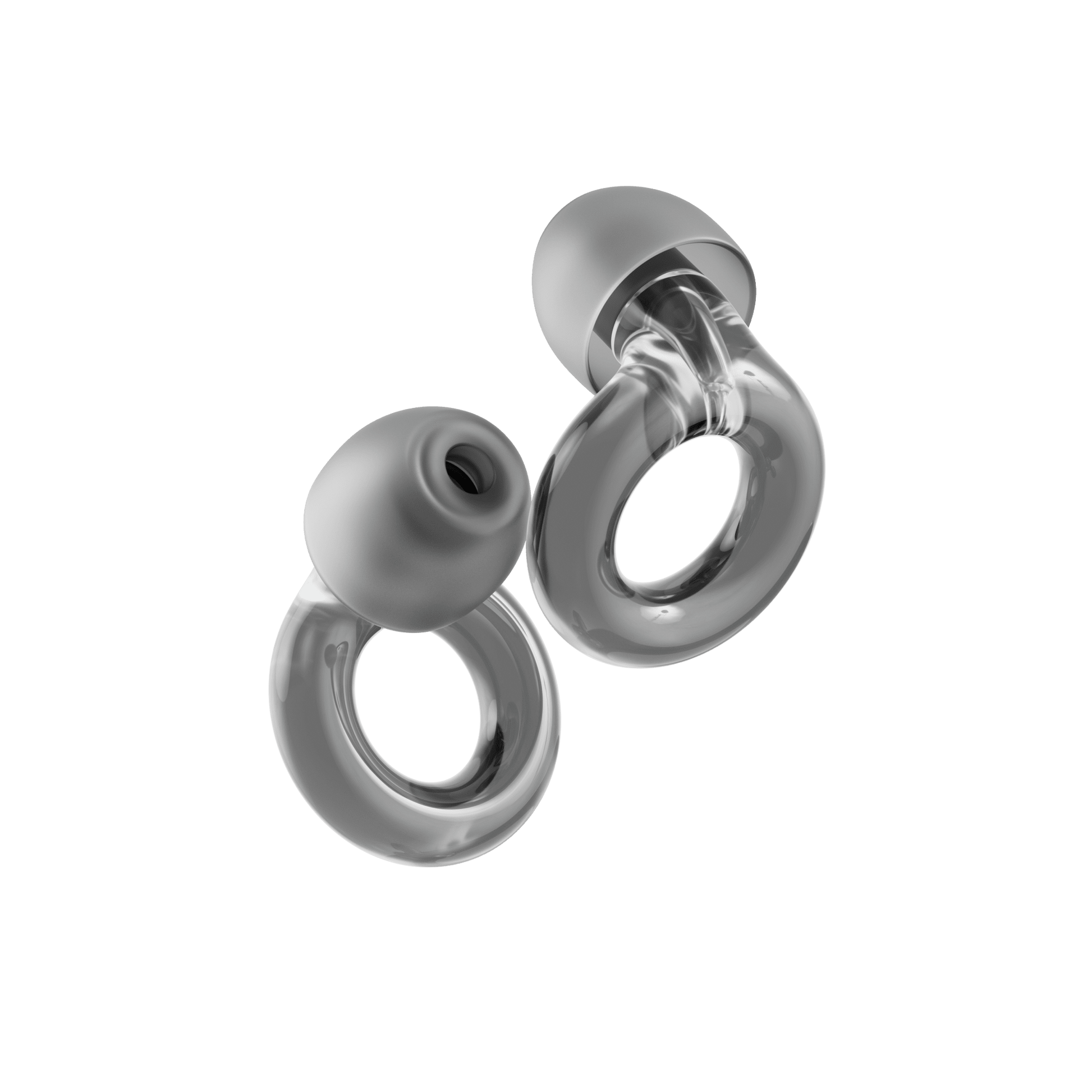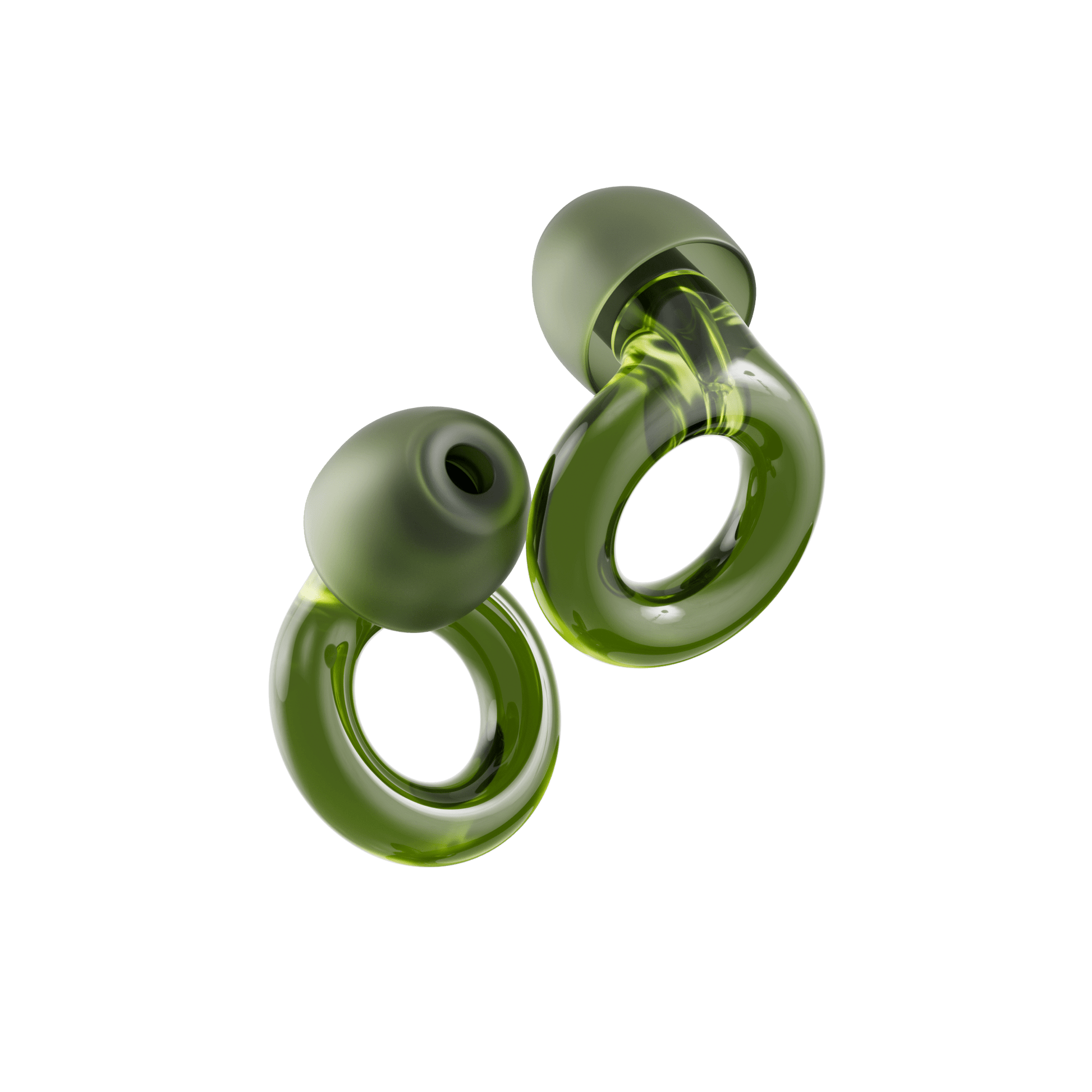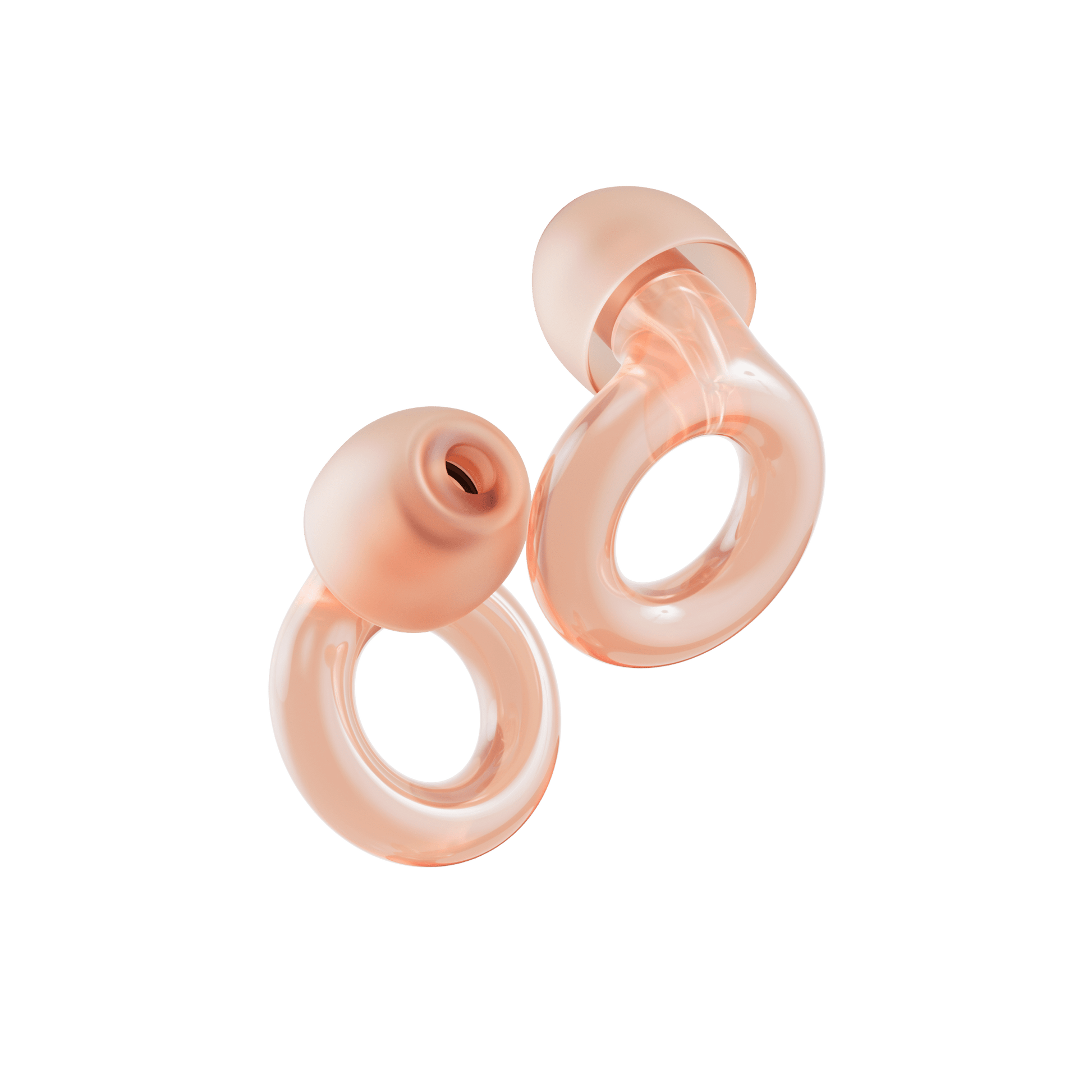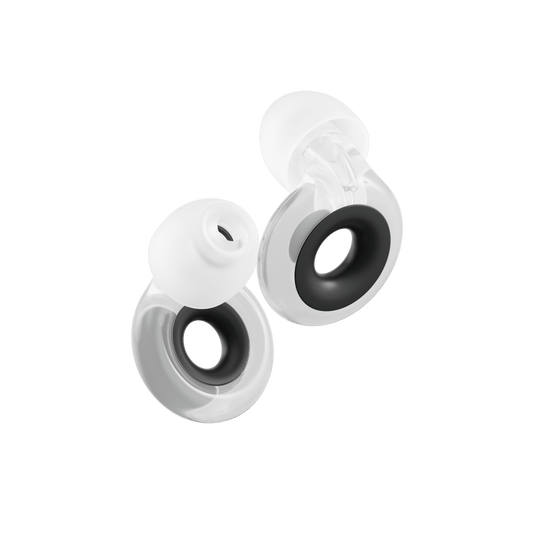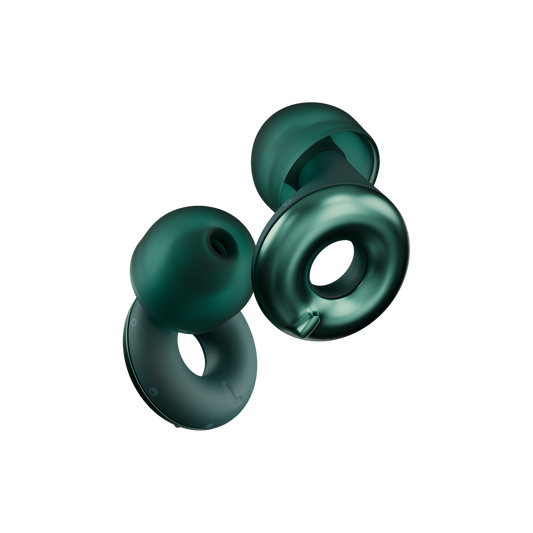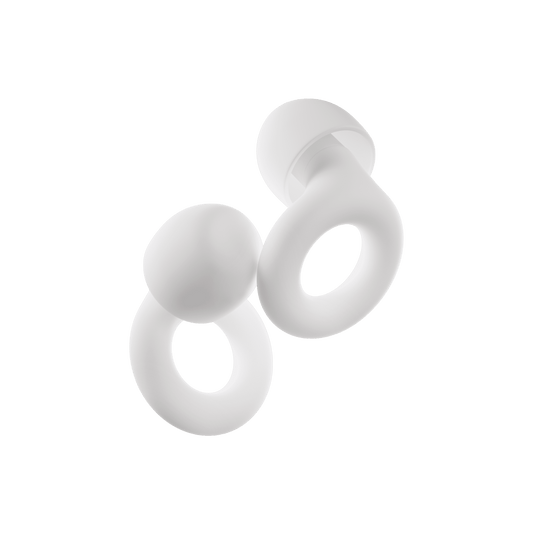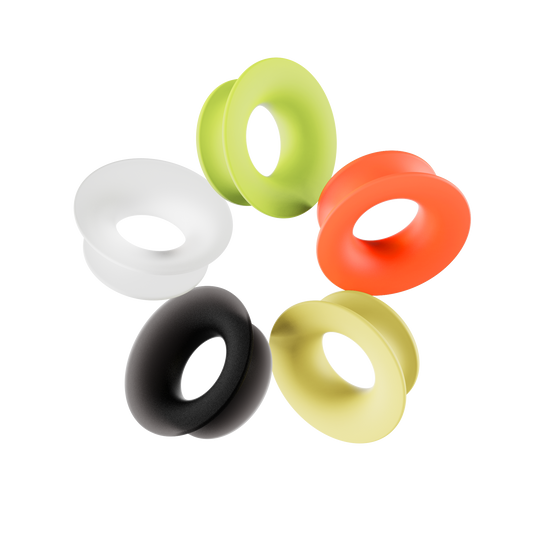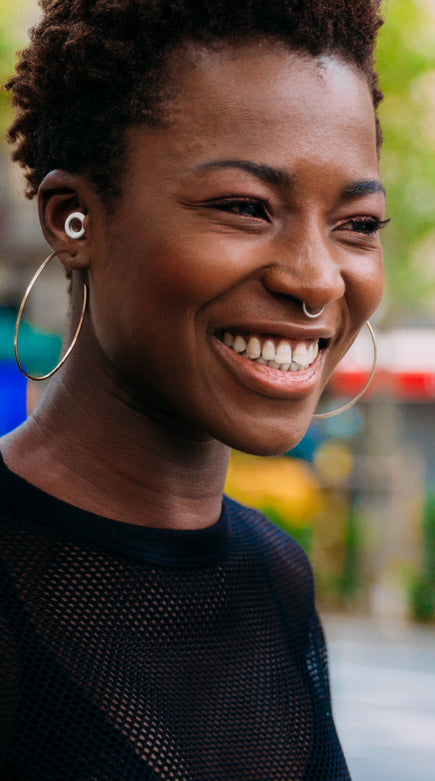

Reusable earplugs for tinnitus
Do you have a ringing in your ears? If so, you could be suffering from tinnitus.Tinnitus is an audiological and neurological condition which gives the perception of sound when no actual external noise is present.
It’s not a disease or a disorder in itself – rather, it is usually a symptom of an underlying health condition. Although we hear a buzzing or ringing in our ears, tinnitus is actually caused by a problem with how the ear hears sounds, and how they’re interpreted by the brain – although scientists disagree on what happens in the brain to cause the illusion of sound when there is none.
Tinnitus can be annoying at best and debilitating at worst. The American Tinnitus Association conducted a survey among its members to evaluate how tinnitus patients experience their condition. It was found that just 4% of the respondents barely notice their tinnitus, while 34% described it as annoying. If you’re one of those people who find it annoying, you may also experience additional symptoms such as depression, anxiety, fatigue, stress, trouble sleeping or a lack of focus.
Loop Earplugs
Loop Engage 2
10M+ happy customers
Featured collection


Why Loop Earplugs are your best option
Standard foam earplugs can cause a dilemma for tinnitus sufferers. You want to reduce triggers and sounds that you’re sensitive to. But foam earplugs work by blocking out sounds – and the complete silence they create can actually increase your awareness of the ringing in your ears, which only makes it worse.
Loop Experience earplugs are different. They’re designed to filter waves rather than block them, thanks to a patented acoustic channel and mesh. That means the sound quality stays clear – just at a lower volume.
And with 17 decibels (SNR) of noise reduction – or a further 3 decibels if you choose Loop Experience Plus – your hearing will be protected. That means your tinnitus is less likely to be triggered by loud sounds. So you can do all the things you love without making your tinnitus worse. And if you don’t already have tinnitus, you’ll be better protected against developing it.
The best earplugs for tinnitus ensure that you’re still able to get out there and enjoy your life, while taking the edge off sounds that you’re sensitive to. That’s exactly what Loop Earplugs do. Because of their unique construction, you’ll still be able to hear conversations and music, so you’ll always feel like you’re part of the action.
Best practices for using Loop Earplugs
Inserting your earplugs correctly is key to ensuring they properly protect your ears – and luckily, they’re simple to insert. Here’s how to do it:
- Hold the ring of the earplug between your thumb and index finger, then gently insert the ear tip into your ear.
- Once it seals the ear canal, give the earplug a small twist towards the back until it sits snugly at the base of your ear.
- Adjust until the ring feels comfortable and your earplugs can’t be seen from the front.
Signs that tinnitus is going away
There are several different causes of tinnitus, including hearing loss, certain medications, earwax buildup and sinus infections. In some cases, your tinnitus will clear up when the underlying cause does. Maybe you’ll just wake up one day and the ringing in your ears will have stopped.
Or perhaps you’ll gradually notice signs of tinnitus going away. If you have temporary tinnitus, signs that your hearing may soon return to normal include:
- The volume of the ringing or buzzing sensation decreasing
- Pressure in your ears starts to improve
- It doesn’t bother you as much
- You’re able to sleep better and can relax without your tinnitus interfering
- The ringing in your ears has only lasted for a few hours or a couple of days
If you have tinnitus, avoiding noisy places isn’t the answer. If you isolate yourself, it can make the ringing in your ears even worse when you are exposed to loud noises. That’s where earplugs for tinnitus come in. They can help to protect our hearing when you do find yourself in noisy environments, and provide some relief from the discomfort.
Is there a cure for tinnitus?
It really depends on the cause of your tinnitus. As mentioned above, if you have temporary tinnitus caused by things like an ear canal blockage, temporary use of medication, or a perforated eardrum, then you may have to deal with tinnitus for a short time before it clears up.
Some other causes of tinnitus may mean that it’s a long-term condition. Permanent tinnitus is more often caused by hearing loss. There are two main causes of hearing loss induced tinnitus: age-related hearing loss, and noise-induced hearing loss.
When tinnitus is caused by hearing loss, of either type, it’s likely to be permanent. Long-term tinnitus can also be associated with Meniere’s disease, a rare disorder that affects the inner ear, and it can also be caused by a traumatic brain injury that affects the way your brain processes sounds.
If your tinnitus doesn’t go away on its own after a few hours or days, then it’s time to see a doctor or audiologist. They can assess your symptoms, diagnose what type of tinnitus you have, and answer questions about whether your tinnitus is permanent or temporary.
Loop Earplugs as a prevention method
Can earplugs help with tinnitus? Well, if you suffer from tinnitus, it’s not recommended that you block out noises completely. That can actually make your tinnitus worse when you are exposed to loud noises. But noise canceling earplugs for tinnitus can be a great tool to help you protect your hearing – which can reduce your risk of developing tinnitus in the first place.
One of the most common causes of tinnitus is hearing loss – and while some hearing loss can’t be prevented, much of it can. It’s important, then, to be mindful of the levels of noise you’re exposed to and take action to protect your ears, both at concerts and on a daily basis. Audiologist Dr Kathleen suggests that earplugs for tinnitus are a simple way of doing this. She explains:
“Earplugs are really good for protecting your hearing when you don’t have control over what you’re being exposed to, it’s environmental or you’re at a concert, whatever it is, you can’t turn that volume down yourself.”
Earplugs like Loop Experience can help you to live in the moment, by filtering sounds equally across all frequencies so you can hear sounds perfectly – but at a reduced volume, with up to 17 decibels (SNR) of noise reduction.
Wearing earplugs will not only help to reduce your chances of hearing loss, but also your risk of developing tinnitus. As Dr Kathleen says:
“If you have damage in the ears from noise, you’re more likely to develop tinnitus, so you’re reducing your risk of that with earplugs.”
Manage your tinnitus
Tinnitus can be difficult to live with, but there are ways to deal with it. Not all causes of tinnitus are preventable, but you can reduce your risk of developing it by protecting yourself from loud noises and hearing loss through the use of earplugs. You can also manage your symptoms through a variety of techniques including sound therapy, self care and addressing your hearing loss, all of which can help you to stay on top of the ringing in your ears and fully live your life, distraction-free.
Frequently asked questions
Can earplugs block out specific frequencies and sounds that trigger tinnitus?
Loop Experience earplugs don’t block out specific frequencies, rather they reduce the overall volume of noise. They work by attenuating sounds across a broad range of frequencies. That means that they reduce the overall volume (by up to 18 dB, or a further 5dB if you use Loop Experience Plus).
Are these earplugs suitable for all types of tinnitus, including subjective and objective tinnitus?
There are three main types of tinnitus: subjective, somatic and objective. Our earplugs are suitable for all three types of tinnitus when you’re in particularly loud environments, helping to reduce your symptoms and prevent your tinnitus from getting worse.
Can earplugs be used in both quiet and noisy environments to manage tinnitus?
Overusing earplugs for tinnitus when you’re in quiet environments may end up making your tinnitus worse. When there’s no background noise, you may be more sensitive and your tinnitus can get worse when you’re not exposed to noise. But it is recommended that you wear earplugs to protect your ears in noisy environments and stop your tinnitus from getting worse.
Can earplugs be used by individuals with hearing loss in addition to tinnitus?
Yes, people who experience tinnitus often also have hearing loss. Wearing earplugs can help to protect your hearing from any further damage in loud environments.













